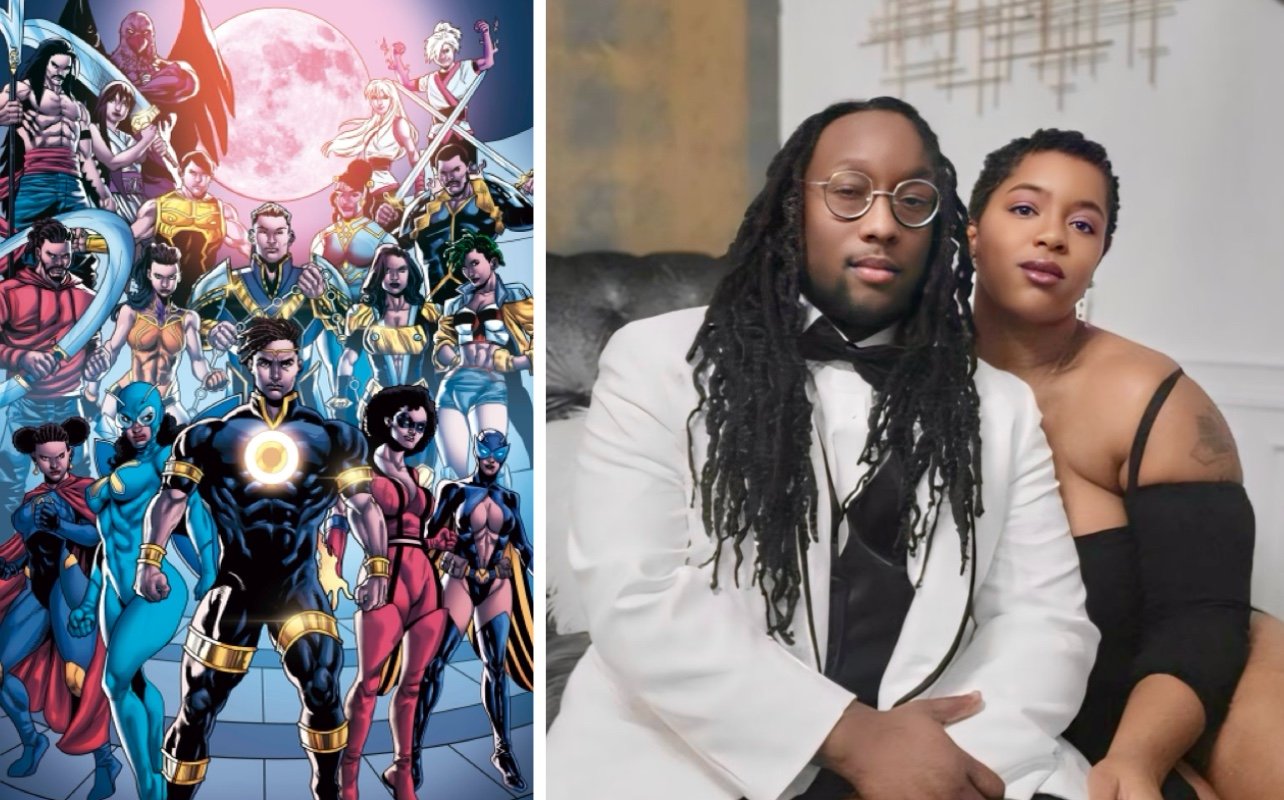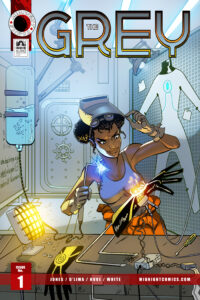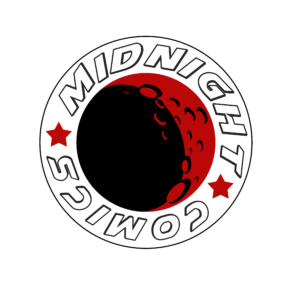Midnight Comics Represents For The Blerds And Beyond

Lloyd S. Jones III and Natosha F. Jones are a husband-and-wife duo and co-owners of Midnight Comics. Midnight Comics is a Black business that represents “marginalized characters of color from all different backgrounds.” The company has set up shop as “Atlanta’s first and largest Black, family-owned, indie comic and manga company.”
BLACK ENTERPRISE spoke with the Joneses about the business of comic books and manga publishing. Natosha and Lloyd are self-professed Blerds introduced to comics, anime, manga and poetry at early ages. The introduction to mainstream content, like the popular anime Dragon Ball-Z, led to Lloyd creating a manga in high school and Natosha exploring writing as a young adult. Their union is a match made in Blerd heaven, which created a space for dual creativity and the start of a publishing empire. The Joneses talk about the trial and error that helped them find their way from artists to successful fundraisers and business owners.
You both are creatives. When you decided to publish comic books and manga, what were your first steps?
Lloyd: We asked, ‘How can we effectively create as much story and content as possible that won’t break the bank? So, we created an anthology series called Tales From Midnight, where we introduced four of our titles at one time.
Now that we’ve provided different products, let’s give it to the audience and let them decide where to move forward or what they want to see move forward.
What have you learned about the business side of publishing?
Natosha: We recently finished a business cohort. It taught us so much about the business side. The ins and outs of overhead, budgeting, employees, grants, and loans. All the small things you don’t think about, especially when you’re really creative and really just want to do all the creative stuff.
Do you have outside investors?
Natosha: Kickstarter has been wonderful. That has been the main avenue in regard to crowdfunding. That’s the only one, actually, that we utilize. Our fans have fallen in love with these stories, so every time one drops those return folks are already coming in, boom, it’s funded.

Talk about your most successful Kickstarter campaign.
Lloyd: The Grey and Admani Kickstarter had the most backers, around 100 plus.
The pricing was different for Seoul. So, financially, I think Seoul did better. But, backer count-wise, what we look at the most is how many new people and how many returning people because now there’s an opportunity to bring them to the website and showcase the other stories.
How do you determine the price points for your product?
Natosha: Although we’re indie, Marvel and DC still count as direct competition. We look at their page counts; what are their page counts, and how much of that is ad space?
Out of a 24-page book with Marvel and DC, you’re getting 10 pages of ads, and they’re charging $5. We might have a one-page with an ad in it. But the rest of our, on average, 32-page books, so we’re gonna charge $10 because you’re getting way more story from us. With more story, people are more interested.
We also, of course, look at indie companies say, what they are charging. What is our overhead? What is, what is our profit margin gonna look like?
What platforms do you sell on besides your own, MidnightComics.org?
Lloyd: Nova Tunes and Global Comics; our stuff is available on there. We’re also in a Nubian Bookstore in Morrow, Georgia. They have the whole catalog, save for the manga.
Seoul is, really, probably our biggest seller. But then, right behind him is The Grey.

Were there any unexpected hurdles on your journey? How did you navigate them?
Lloyd: Our first artist spoiled us with the price and services that they provided. They did everything. When we moved over to the traditional style comic book side, it was a little bit more in-depth on the business side of it. It kind of slipped our mind that, in most cases, there’s a penner, inker, and colorer, then a letterer.
How does that impact production once you realize a person is not working out and you have to pivot?
Lloyd: A few times, we have had to switch artists. One of them decided to do a price change toward the end of production. They said. ‘By the way, my price went up. Another had some critiques for the stories that were more racist. They felt like, essentially, the Black character should be the bad guy.
Now, we go on a book-by-book basis.
Do those experiences change your hiring process or contractual agreements?
Lloyd: It changed a lot. We ask people first, like, ‘You’ve worked with this guy? Somebody who’s worked with them before let us know what that looked like all the way through.
We also look for somebody who’s invested and knows these stories. We don’t just go by how well they draw but how invested and knowledgeable they are in these things.
Do you have any current fundraising efforts?
Natosha: We were just part of a massive collaboration that’s ending on Kickstarter, Epiphany Engine. It brought together 40-plus comic book publishers.
Lloyd: It’s, dare we say, the largest Black indie comic book crossover collaboration ever. We raised $52,000 for this project, and by the time it’s over, it may be another couple of thousands.
Is there anything you want the BE audience to know?
Lloyd: If you’re trying to get into, really anything, just do it. You’re not gonna ever know everything. Be open; there will be closed doors, but just as many open doors and yeses at the same time. If there is a need and you believe you can fill it, go ahead and fill it.
RELATED CONTENT: Celebrating Black Business Month 2024







